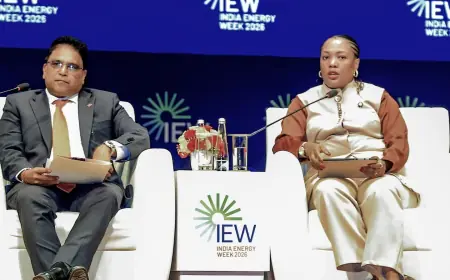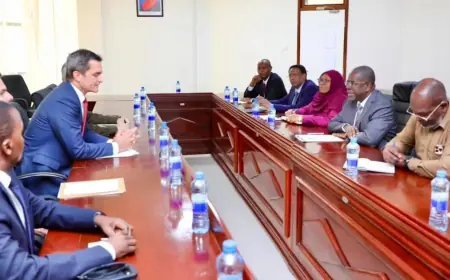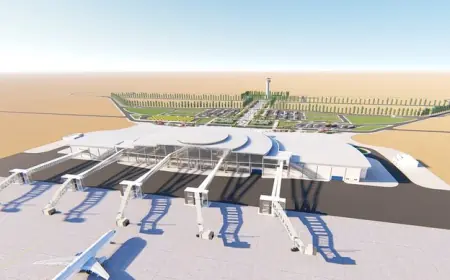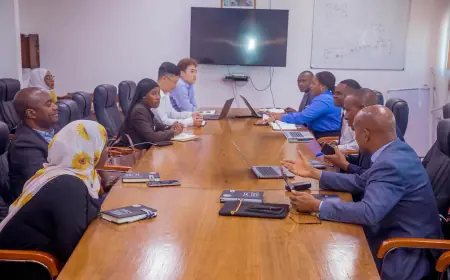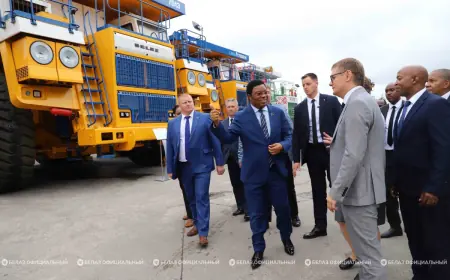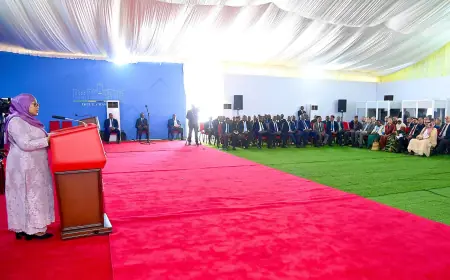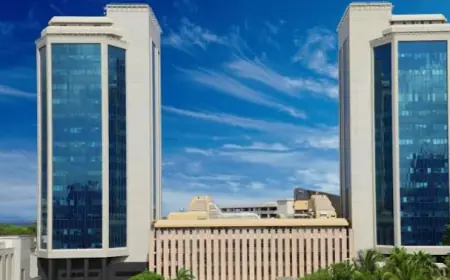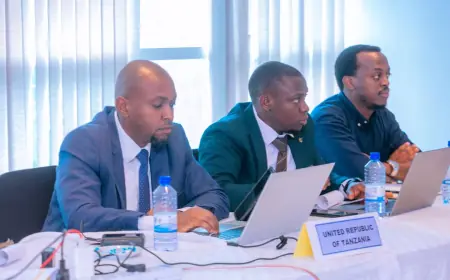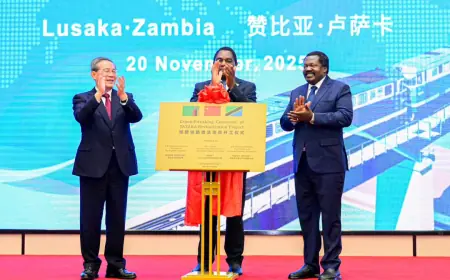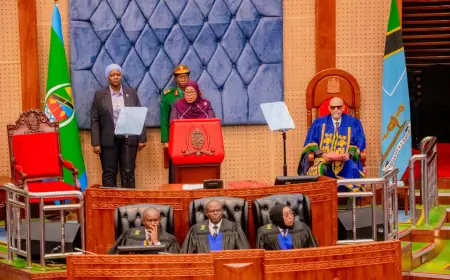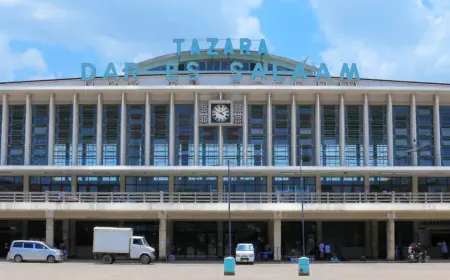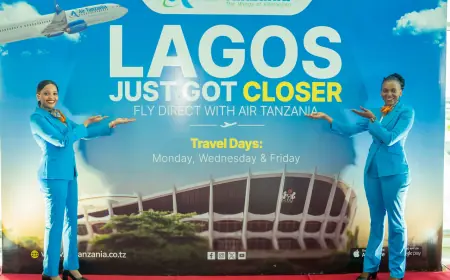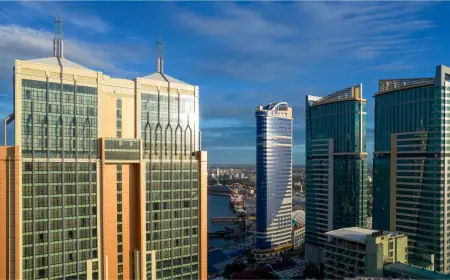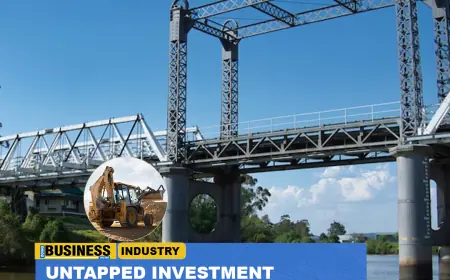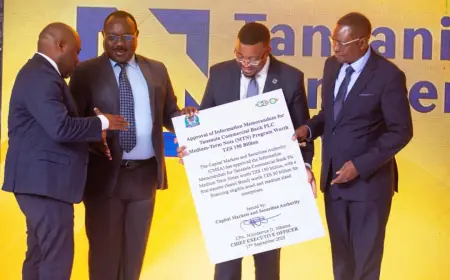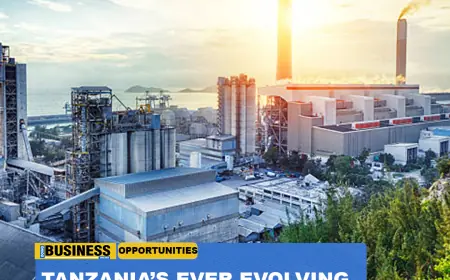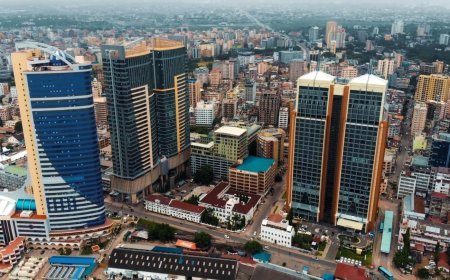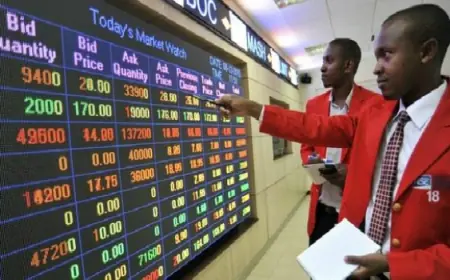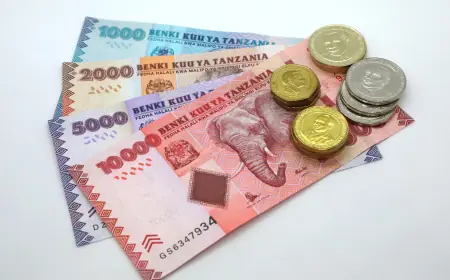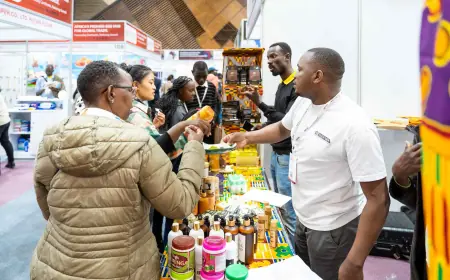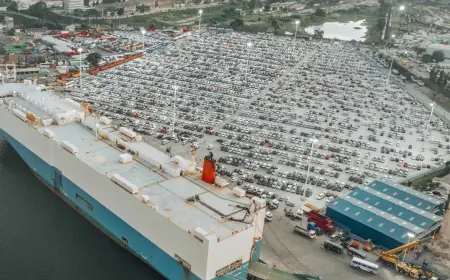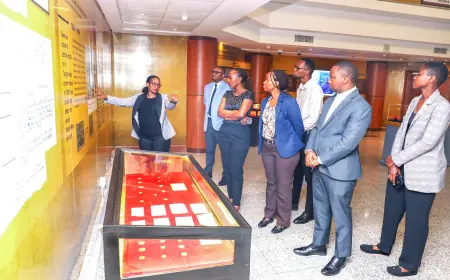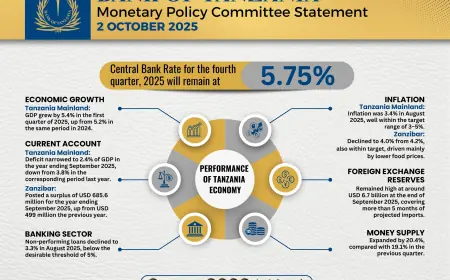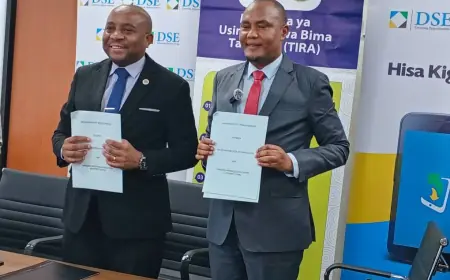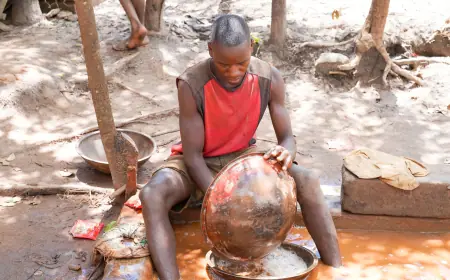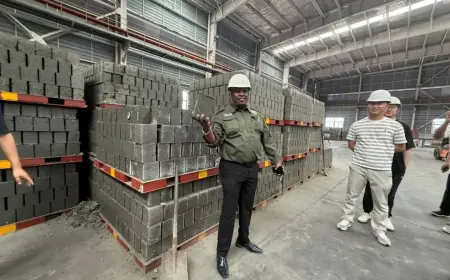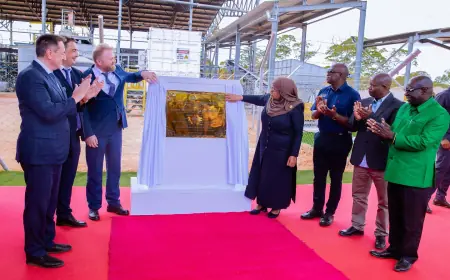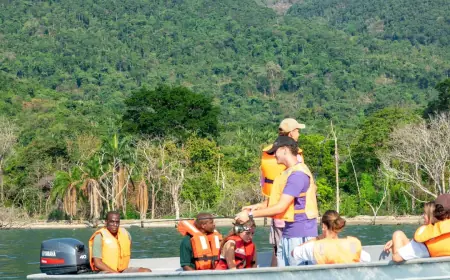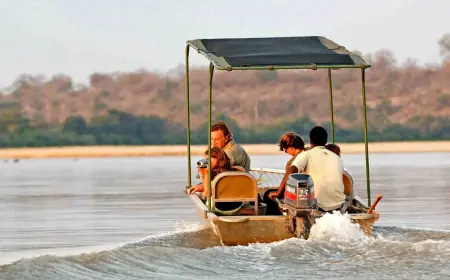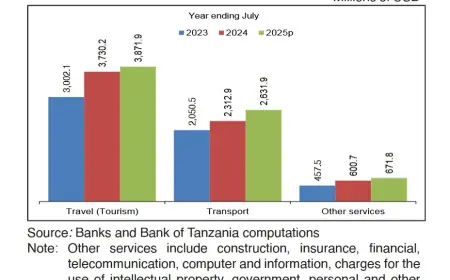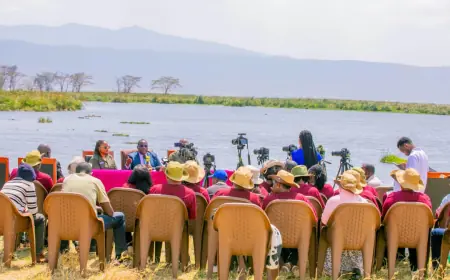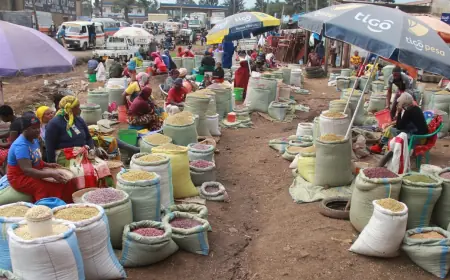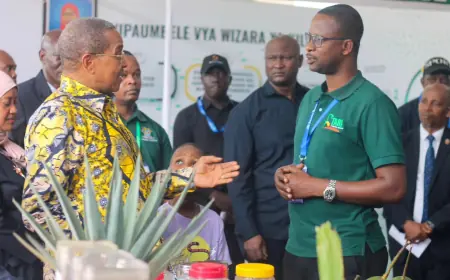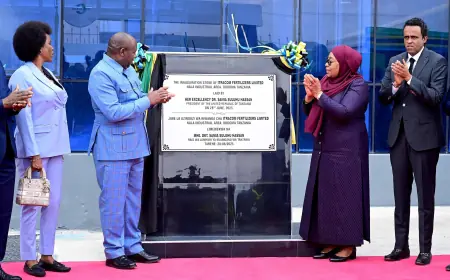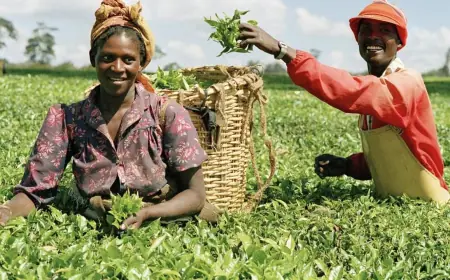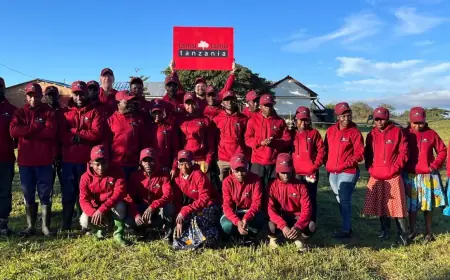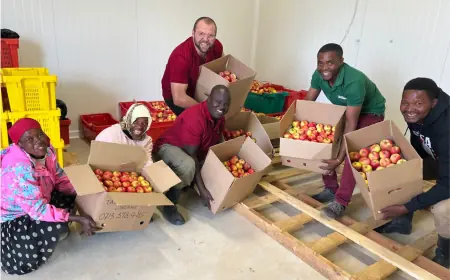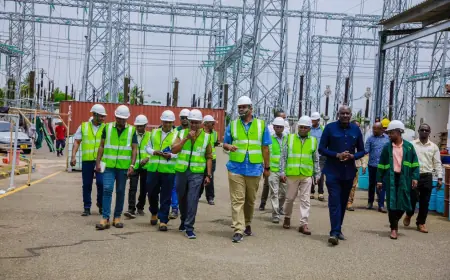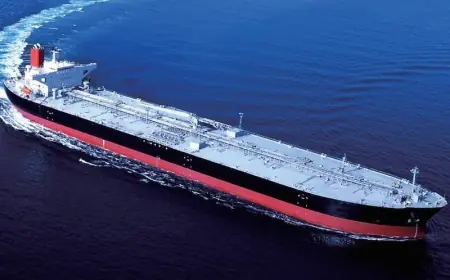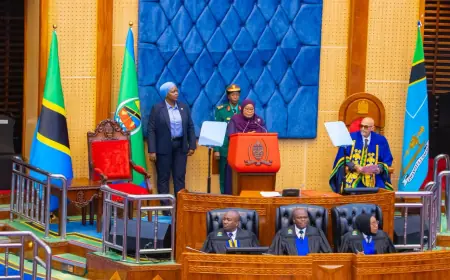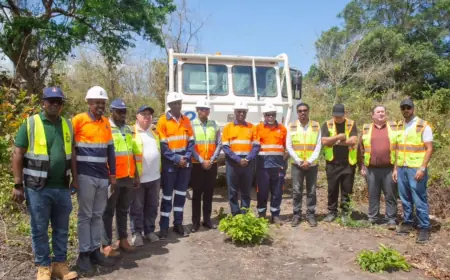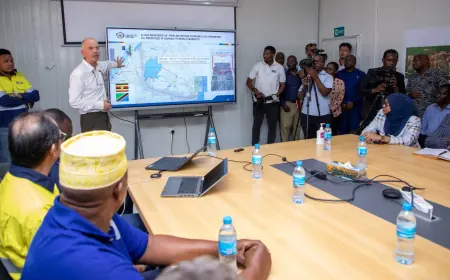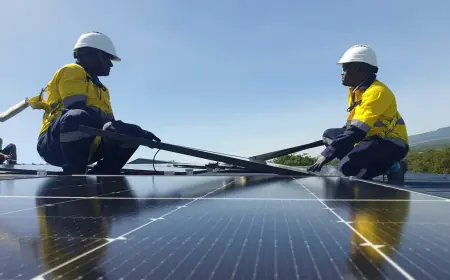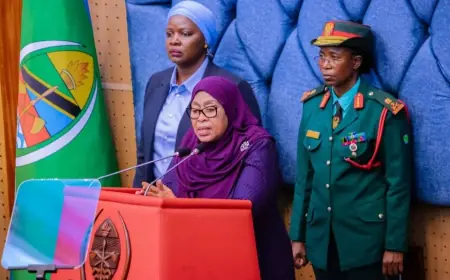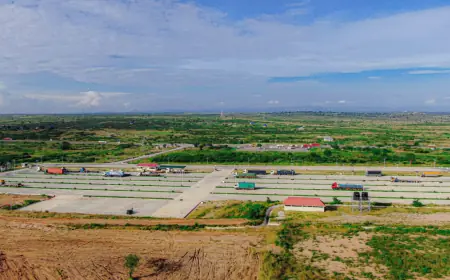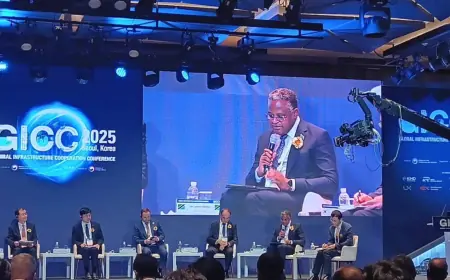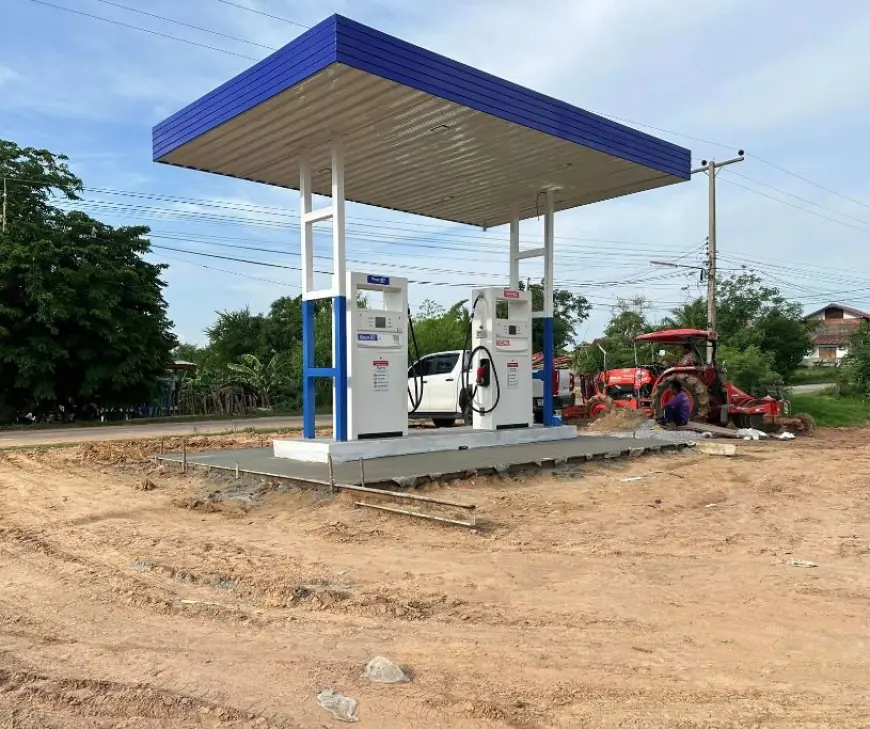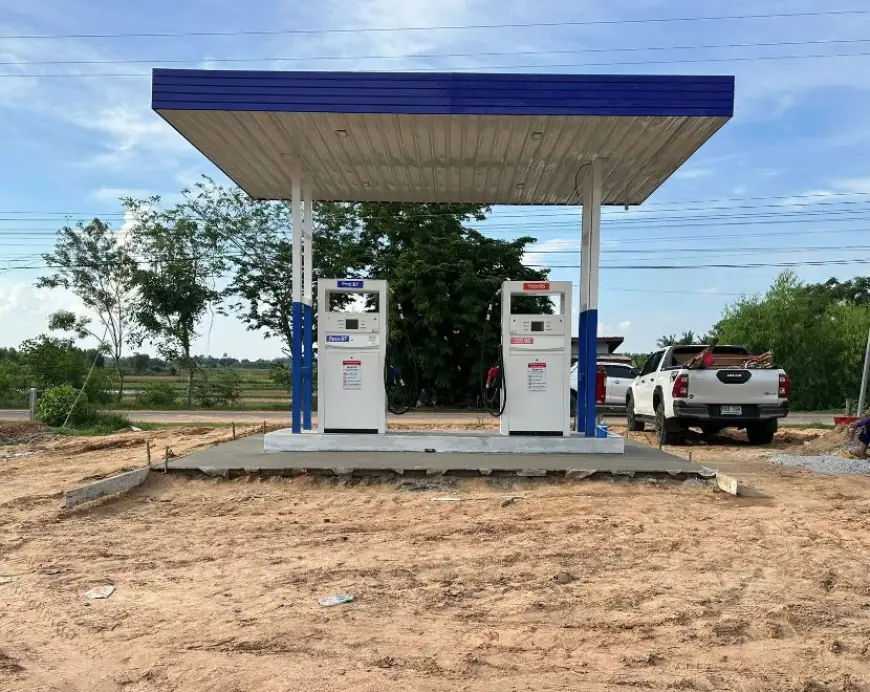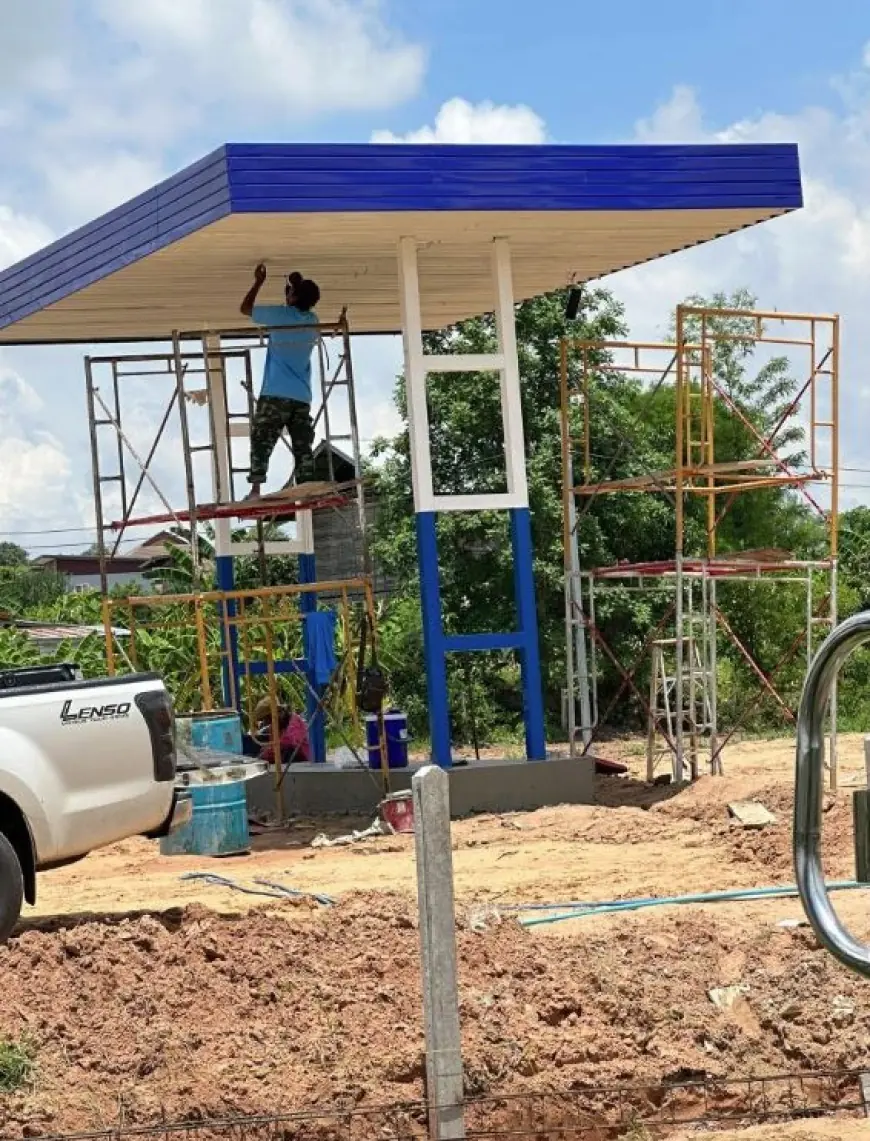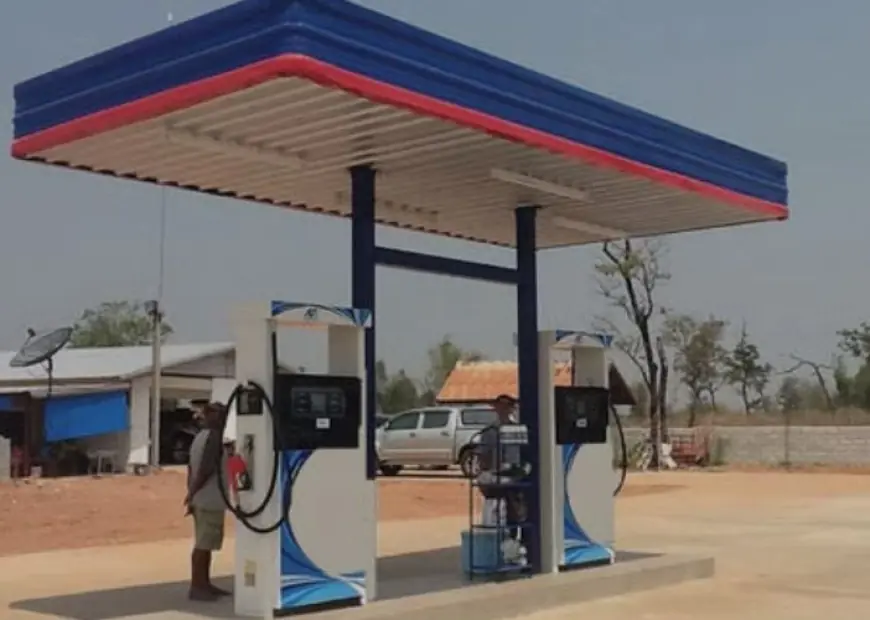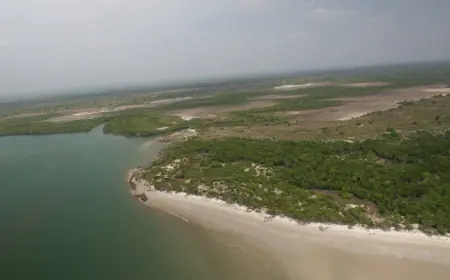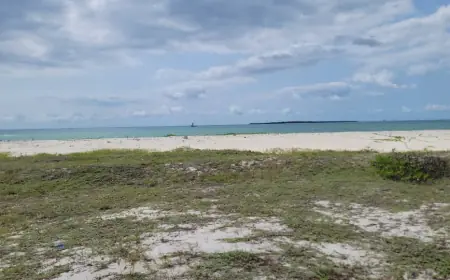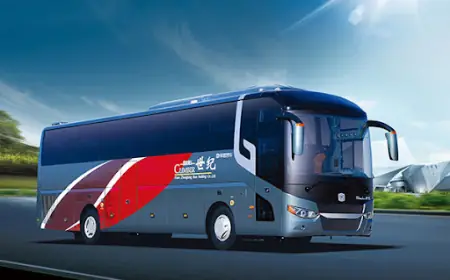Tanzania rolls out detailed loan programme to support rural fuel stations across the country
The initiative is part of the Government's continued efforts to address persistent energy access gaps in rural areas, while also ensuring environmental protection, public safety, and improved livelihoods
Dar es Salaam. In a bold move aimed at transforming access to clean and affordable energy in rural Tanzania, the Rural Energy Agency (REA) has unveiled an elaborate and investor-focused financing programme that seeks to support the construction and operation of mini fuel stations in underserved communities across the country.
Launched during the ongoing 49th Dar es Salaam International Trade Fair (DITF) at the REA exhibition pavilion, the initiative is part of the Government's continued efforts to address persistent energy access gaps in rural areas, while also ensuring environmental protection, public safety, and improved livelihoods.
REA’s Survey Officer, Mr Hussein Shamdas, announced that eligible individuals, registered companies, and rural entrepreneur groups can now apply for concessional loans of up to Sh133 million at a subsidised annual interest rate ranging between 5 and 7 percent, with a repayment period of up to seven years.
The programme is anchored in the Government’s strategic intent to phase out unsafe practices such as the storage and sale of petrol and diesel in plastic containers, drums, and bottles—which are still common in many rural areas.
“Currently, most villagers store fuel in makeshift containers such as jerrycans and plastic drums inside their homes, which is not only a fire hazard but also a public health and environmental concern,” said Mr Shamdas.
He added that the agency’s goal is to ensure that rural communities have access to affordable and regulated petroleum products through properly constructed and licenced fuel stations, which will in turn contribute to rural employment, stimulate local economies, and increase government tax revenues.
Formal Regulatory Framework
To operationalise this ambitious project, REA issued a comprehensive implementation guideline in March 2024 titled:
Guidelines for the Issuance and Management of Loans for Facilitating the Construction and Operation of Small Rural Petroleum Product (Petrol and Diesel) Stations.
The guideline stipulates all the necessary requirements, application procedures, financial obligations, technical standards, and regulatory conditions for eligible investors.
It ensures the effective use of the Rural Energy Fund by guiding how resources will be channelled to support the construction of new fuel stations only, not the rehabilitation of existing facilities or structures that are already under construction.
TECHNICAL SPECIFICATIONS FOR FUEL STATIONS
According to the guideline, each mini fuel station will be designed to meet minimum technical standards to ensure safety, functionality, and compliance with national regulations. A typical station will consist of:
A 4,500 to 5,000-litre underground storage tank (UST) for either petrol or diesel;
A dual-dispenser fuel pump, allowing two fuelling points;
A roof canopy to cover the fuelling area;
A small office building with at least one office room and two toilets;
An oil-water separator system to manage spillages and protect the environment; and
A secured compound occupying a land area of no less than 400 square metres.
ELIGIBILITY CRITERIA FOR APPLICANTS
Applicants—referred to as "developers" in the guideline—must meet the following key requirements:
1. Be a Tanzanian individual, registered company, or community-based entrepreneur group recognised by a village government or local authority;
2. Submit a formal loan application to REA specifically for new stations;
3. Possess construction approvals from local government authorities and EWURA (Energy and Water Utilities Regulatory Authority), or proof of application payments;
4. Have a confirmation letter from both the village and district councils endorsing the location and intent to operate a fuel station;
5. Hold a valid Taxpayer Identification Number (TIN) from the Tanzania Revenue Authority;
6. Provide proof of land ownership—this can be a title deed, customary right of occupancy, or any other recognised form of land tenure issued by the relevant authorities;
7. Present a supply agreement or letter of intent with a licensed fuel distributor;
8. Complete and submit a business proposal form outlining operational plans, expected volumes, and repayment strategy.
LOCATION REQUIREMENTS
The guideline outlines strict spatial conditions for the siting of new fuel stations:
The proposed village must not already have a fuel station;
The site must be at least 10 kilometres away from the nearest operational fuel station;
It should be situated along roads managed by TARURA or TANROADS, and at least 7 kilometres from major highways;
It must be easily accessible throughout the year;
The proposed plot must be at least 400 square metres;
The site must maintain a minimum 50-metre buffer zone from sensitive community services such as schools, health centres, places of worship, bus stands, airports, and markets.
FINANCIAL AND BUSINESS EXPERIENCE REQUIREMENTS
Applicants must also demonstrate financial discipline and business acumen:
Submit a letter detailing the requested loan amount, the purpose of the loan, the source of repayment funds, repayment plan, and proposed collateral;
Provide proof of prior business experience, particularly in fuel distribution. For first-time fuel retailers, experience in other commercial activities will be considered;
For groups, letters from the registering authorities (village or district) must be submitted to verify creditworthiness and operational history;
Collateral must cover at least 125 percent of the requested loan and include all fixed and movable assets of the project, such as land, buildings, pumps, tanks, and fuel stock.
APPLICATION AND APPROVAL PROCESS
The loan application process is divided into seven key stages:
1. Public Announcement – REA publishes the loan opportunity via its website ((http://www.rea.go.tz), Ministry of Energy portal, EWURA, commercial banks, TAMISEMI, and mainstream and local media.
2. Submission of Applications – Prospective developers complete application forms (Annex 2) and submit them to REA with all required documentation.
3. Technical Review – REA conducts a thorough technical evaluation of each application based on the specified criteria.
4. Verification of Information – Applicants who meet the requirements undergo field verification to validate the authenticity of submitted documents and claims.
5. Technical Approval – Qualified applicants are listed in an official REA register that includes names, contact information, loan amount requested, and proposed project location.
6. Submission to Financial Institutions – REA submits the approved list to partnering commercial banks for financial assessment and risk profiling.
7. Financial Evaluation by Bank – Banks conduct an independent financial appraisal in line with the financial criteria outlined in the guideline.
Loan disbursement is done in three phases, tied to milestones:
i) Site preparation and civil works,
ii) Equipment procurement and installation, and
iii) Operational capital.
Each subsequent tranche is released only after confirmation that the previous stage has been completed satisfactorily.
LOAN TERMS AND REPAYMENT CONDITIONS
Additional loan conditions include:
The developer must not transfer ownership of the station during the repayment period without the bank’s consent;
Developers may only apply for one loan under this scheme;
The interest rate starts at 5 percent per annum, subject to adjustment based on economic conditions;
Borrowers are granted a grace period of up to six months, after which monthly repayments begin;
The maximum loan limit is Sh75 million, depending on the borrower’s needs and financial assessment;
Successful applicants must consent to fire insurance coverage to mitigate risk;
Loan repayments must be deposited into a designated bank account, from where they are transferred to REA’s account at the Bank of Tanzania as per contractual obligations.
Strategic Objectives and Expected Outcomes
REA expects the implementation of this fuel station programme to yield the following key results:
1. Elimination of illegal and unsafe storage practices, including use of plastic drums and bottles;
2. Establishment of safe, accessible fuel stations in rural locations;
3. Improved environmental and public safety, including reduced fire risk and fuel spillage;
4. Greater energy access at government-regulated prices, reducing transport costs for rural populations;
5. Expanded rural employment through station management, logistics, and maintenance;
6. Enhanced fuel quality and reliability for users, including motorcycle riders and farmers;
7. Increased tax revenue from the formalisation of rural fuel trade.
Call for Potential Investors
Mr Shamdas urged all interested Tanzanians—especially those in rural areas—to take advantage of the programme by visiting the REA website for further guidance or engaging with the agency at the trade fair.
“This is not just a loan. It is a long-term investment in community safety, economic growth, and the future of energy in Tanzania’s rural heartland,” he said.
With proper execution and investor participation, REA’s initiative could mark a transformative chapter in Tanzania’s energy access agenda—bridging urban-rural disparities and stimulating rural industrialisation across the country.
What's Your Reaction?
 Like
0
Like
0
 Dislike
0
Dislike
0
 Love
0
Love
0
 Funny
0
Funny
0
 Angry
0
Angry
0
 Sad
0
Sad
0
 Wow
0
Wow
0
